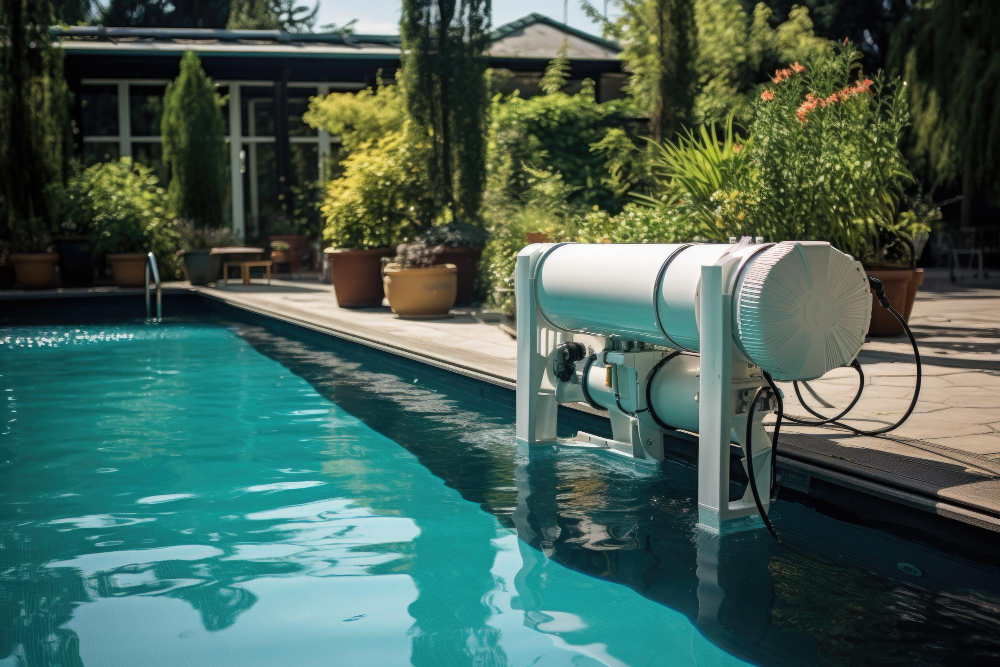
Your pool pump is the heart of your swimming pool’s circulation system, keeping the water clean, safe, and consistently enjoyable. But when it starts to fail, it can leave you with cloudy water, unexpected costs, and potential damage to other parts of your pool system. Knowing when your pump needs to be replaced can save you both time and money, and it keeps your pool in the best condition possible.
If you’re noticing issues but aren’t sure whether it’s time for a replacement, this blog will walk you through 7 warning signs that your pool pump needs attention. Plus, if you’re looking for a reliable solution for pool repair in Palm Coast, FL, we’ve got you covered.
Why Pool Pump Maintenance Is Crucial
A well-functioning pool pump ensures proper water circulation. The pump pulls water from the pool, filters it, and pushes it back in as clean and sanitized water. Without it, contaminants build up, algae can grow, and your pool may become unsafe for swimming.
Routine maintenance can extend your pump's life, but even the most robust equipment wears out over time. Here are the signs you should look for when determining whether repair or replacement is necessary.
7 Signs Your Pool Pump Needs to Be Replaced
1. Your Pool Pump Makes Strange Noises
Is your pump suddenly louder than usual? Screeching, grinding, or rattling noises are clear indicators of trouble. These sounds often mean that the internal bearings are worn out or that debris has damaged the impeller. While minor issues might be fixable, consistent loud noises could signal that it’s time for a replacement.
What to Do:
- Clean your pump to rule out blockages.
- If the noise persists, call a professional pool repair technician in Palm Coast, FL, to evaluate whether repairs or replacement is necessary.
2. The Pump Loses Prime Frequently
Your pool pump needs to maintain "prime" for proper water flow. If it keeps losing prime and fails to pull in water, there may be cracks, leaks, or air entering the system. Constant priming struggles can burn out the motor, requiring a replacement.
What Causes This?
- Worn-out o-rings
- Cracked pump housing
- Improperly sealed plumbing joints
3. Constant Motor Overheating
Does your pump shut off unexpectedly during operation? Overheating is a common sign of motor failure. While this can sometimes be caused by poor ventilation or clogged lines, an old or failing motor may simply be under too much strain.
Pro Tip:
Instead of replacing the motor alone, it’s often more cost-effective to upgrade the entire pump with modern, energy-efficient models.
4. Your Pool Pump Is Leaking Water
Water pooling around the base of your pump isn’t just messy; it’s a sign of serious wear. Leaks often stem from damaged seals or poorly connected pipes, but if ignored, they can lead to motor and electrical failures.
What to Look For:
- Cracks in the pump housing
- Worn mechanical seals
5. Reduced Water Flow in Your Pool
One of the first symptoms of a struggling pump is poor circulation. If you notice weak water flow from your pool jets or murky water despite regular cleaning, the pump might not be operating at full capacity.
Causes of Low Pressure:
- Dirty filters or clogged lines
- Impeller damage
- Faulty pump motor
6. Outdated or Inefficient Technology
Old or outdated pumps not only waste energy but can also struggle to keep up with modern pools. If your electric bill spikes during pool season, or if your pump lacks adjustable speed settings, consider replacing it with a high-efficiency model.
Benefits of Upgrading:
- Energy savings with variable-speed pumps
- Reduced noise levels
- Longer lifespan
7. Frequent Repairs Are Adding Up
If you’re spending more on frequent repairs than the cost of a new pump, it’s time to stop patching temporary fixes. Constant breakdowns and part replacements are clear signs your pump has reached the end of its life span.
When to Repair vs. Replace Your Pool Pump
Here’s a quick guideline to help you decide whether to repair or replace your pump:
- Repair if the issue is minor, such as replacing a seal or unclogging the impeller.
- Replace if the motor is failing, if the pump is over 8-10 years old, or if repair costs outweigh replacement costs.
How to Choose the Right Replacement Pool Pump
If you decide it’s time to replace your pump, choosing the right model for your pool is critical. Consider these factors:
- Pool Size: Larger pools require pumps with higher capacity.
- Speed Options: Variable-speed pumps are energy-efficient and quieter than traditional single-speed pumps.
- Energy Rating: Look for models that meet state energy efficiency regulations to save on utility costs.
- Trusted Brands: Stick with reliable brands known for durability and quality.
Consult a pool professional to assess your specific needs and recommend the best replacement options.
Act Fast to Avoid Bigger Pool Problems
Ignoring a pool pump issue doesn’t just affect the pump; it compromises your entire pool filtration system. Left unresolved, small problems can lead to larger (and more expensive) repairs like filters, heaters, or even pipe damage.
If you need assistance with a faulty pool pump, professional pool repair in Palm Coast, FL, is just a call away.
Fix Your Pool Pump Problems Today
A faulty pool pump doesn’t have to ruin your swim season. If you’re noticing any of the signs mentioned above, take action. Whether you need maintenance, repair, or a full replacement, it’s essential to keep your pool safe and clean.
Call to Action
Looking for reliable pool repair in Palm Coast, FL? Contact All Phase Pool Remodeling today for free estimates. Our team of experts will diagnose your pool pump issues and provide quality solutions so you can get back to enjoying your pool.